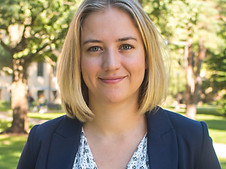KBRADING.ORG
Du Châtelet Prize
The Du Châtelet Prize in Philosophy of Physics celebrates excellence in philosophy of physics and promotes breadth across the field both historically and philosophically.
The Du Châtelet Prize in Philosophy of Physics is supported by Duke University in collaboration with Studies in History and Philosophy of Science.
2025
Topic: Physics in the writings of 18th and 19th century women

Submissions are invited on the writings of women in the 18th and 19th centuries pertaining to physics. The topic should be construed broadly to include: any genre in which the women were writing; “physics” as understood then and/or now; both experimental and theoretical physics; and physics in relation to other areas of inquiry. For example, such writings may engage with concepts, theories, practices, foundations, or methods; with the nature and scope of physics itself; or with philosophy of science more generally, as it applies to physics. Figures of interest include Laura Bassi, Emilie Du Châtelet, Sophie Germain, Caroline Herschel, Jane Marcet, Maria Mitchell, Christina Roccati, Mary Somerville, and Victoria Welby among others, and we welcome submissions that bring to light women who are perhaps less familiar in the history and philosophy of physics. Submissions may engage with the work of a single figure or multiple figures.
Committee: Joshua Eisenthal, Samuel Fletcher, Andrew Janiak, Marcy Lascano, Emily Thomas, Jennifer Whyte.
The deadline for submissions has now passed. A warm thank you to everyone who submitted. After much deliberation, no paper was selected as the winner this year.
The 2024 prize competition is cancelled and a new call posted for 2025
2023
Laws and symmetries in the practice of physics


This year marks the 40th anniversary of the publication of Nancy Cartwright’s highly influential book, How the Laws of Physics Lie. In honor of this, we invite submissions addressing the ways laws and symmetries are deployed in the practice of doing physics: in experiment, in theory, and in the interplay between them. The scope is intended to be broad, encompassing the variety of theoretical, practical, and explanatory roles that laws and symmetries play in physics.
Winners: Marta Bielinska and Caspar Jacobs for their paper “A Philosophical Introduction to Hidden Symmetries in Physics”
Marta’s and Caspar’s paper investigates examples of so-called “hidden symmetries”, widely used in physics, arguing that such symmetries pose new challenges for philosophical accounts of symmetries and for “symmetry-to-reality” inferences.
Marta is currently a doctoral student at the University of Oxford. Before this, she completed, also at the University of Oxford, the MSc in Mathematical and Theoretical Physics (2022) with a dissertation on hidden symmetries, and the BPhil in Philosophy (2021) with a dissertation on spacetime orientability. In addition to her work on foundations of spacetime, she is also interested in philosophical accounts of laws of nature and scientific practice, as well as contemporary ontology.
Caspar is currently a university lecturer at Leiden University. He defended his DPhil at the University of Oxford in 2021 with a dissertation on the interpretation of symmetries in physics. In addition to his work on symmetries, Caspar is also interested in the metaphysics of quantities and early modern history and philosophy of science, especially the work of Du Châtelet.
Committee: Elena Castellani, Nina Emery, Bas van Fraassen, Marc Lange

2022
Descartes' Metaphysical Physics
Winner:
Ovidiu Babeș, “Mixed Mathematics and Metaphysical Physics:
Descartes and the Mechanics of the Flow of Water”
Committee:
Roger Ariew, Dan Garber, Dana Jalobeanu, Alison Peterman, Sophie Roux

2021
Measurement practices in the physical sciences: correlation, calibration and stabilization
Winners:
Jamee Elder, “On the ‘direct detection’ of gravitational waves"
Miguel Ohnesorge, “Pluralising measurement: Physical geodesy's measurement problem and its resolution” Studies in History and Philosophy of Science 96 51-67, 2022
Committee:
Alisa Bokulich, Hasok Chang, Daniel Mitchell, and Wendy Parker

2020
Mathematics as a tool of conceptual innovation in physical theory and/or experiment, 1780-1890
Winner:
Joshua Eisenthal, "Hertz's Mechanics and a unitary notion of force” Studies in History and Philosophy of Science Part A 90 226-234. 2021
Committee:
Janet Folina, Doreen Fraser, Lydia Patton and Sheldon Smith


2019
How matter acts on matter: unsolved problems in the philosophy of physics, 1700-1760
Winner:
Adwait Parker, “Newton on Active and Passive Quantities of Matter” Studies in History and Philosophy of Science Part A 84 1-11. 2020
Committee:
Katherine Brading, Mary Domski, Andrew Janiak, Chris Smeenk, and George Smith
"Physics is an immense building that surpasses the powers of a single man. Some lay a stone there, while others build whole wings... still others survey the plan of the building, and I, among them."